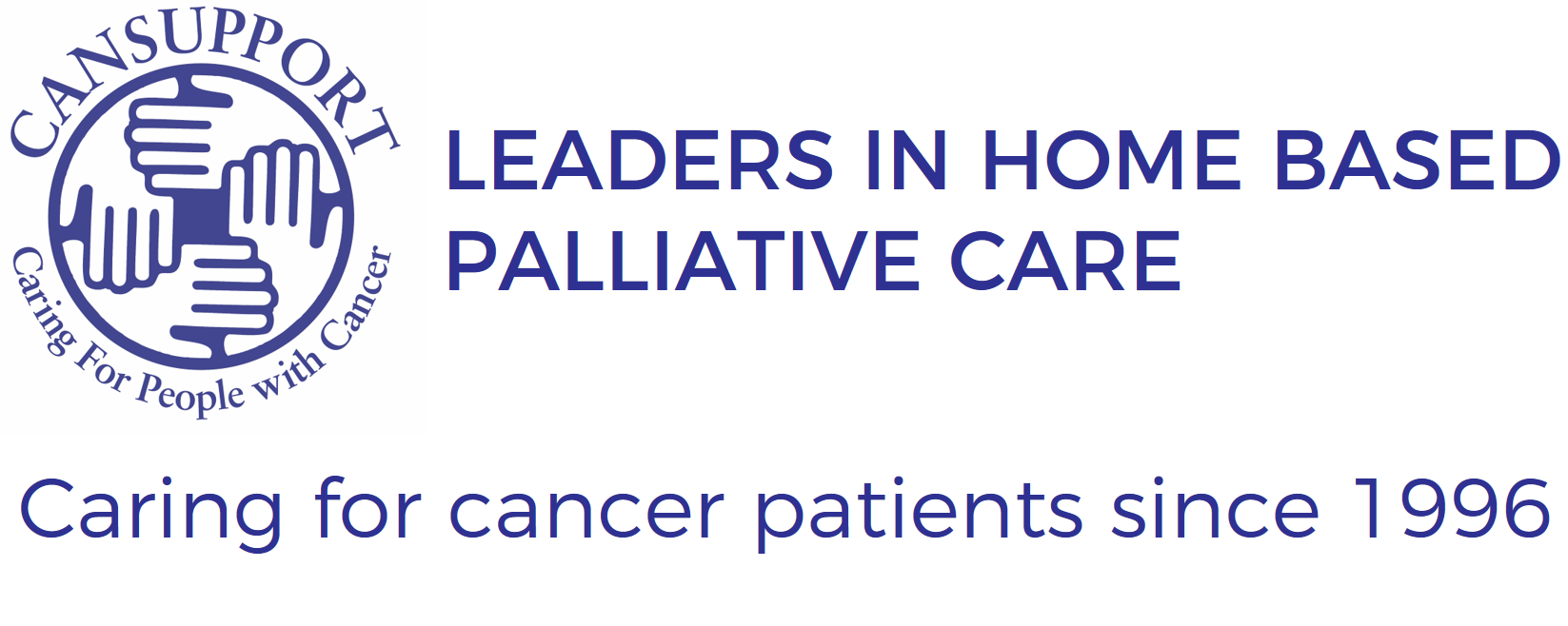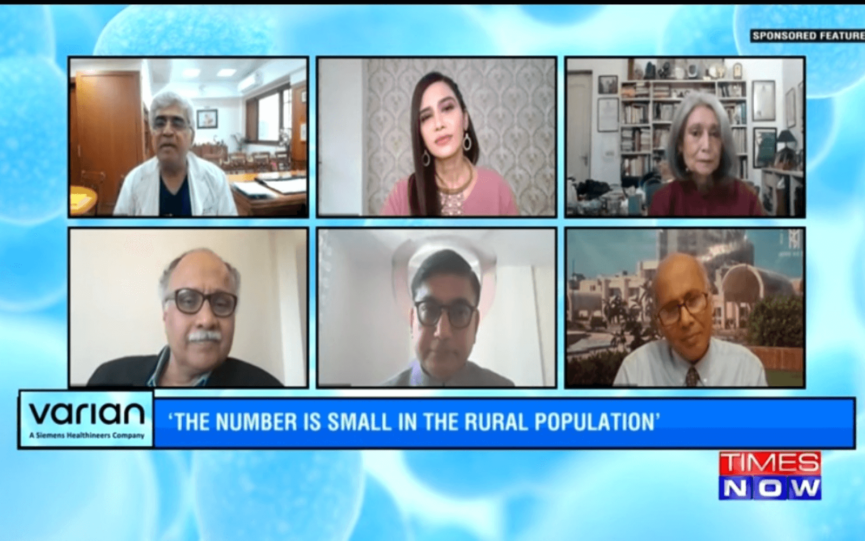Varian – A Siemens Healthineers Company had organised a panel discussion tilted ‘India’s Growing Cancer Burden’ in February and the same was telecast on Times Now on April 24 & 25.
The highly distinguished panel included:
- Dr Rajendra Badwe – Director, Tata Memorial Centre, Mumbai
- Dr Shaleen Kumar – Professor & Head, Department of Radiation Oncology. SGPGIMS, Lucknow
- Dr Harit Chaturvedi - Chairperson Max Institute of Cancer Care, New Delhi
- Harmala Gupta – Founder President CanSupport & Cancer Care India
- Ashok Kakkar – Senior MD Varian – A Siemens Healthineers Company
The panel discussion was held to address the rising incidence of cancer in India. With a caseload of over 4.5 million people suffering from the disease, what does India need to do to bridge the gaps and to improve patient outcomes with cancer care?
Asked if cancer is a lifestyle disease or patients are genetically predisposed, Dr Rajendra Badwe–Director, Tata Memorial Centre, Mumbai said that less than 2 percent of cancers are inherited, the rest of it is from environmental assaults.
Touching upon the telltale signs of cancer that require immediate attention, Dr Shaleen Kumar–Professor & Head, Department of Radiation Oncology. SGPGIMS, Lucknow pointed them out as a sore that’s not healing or any lumps or bumps in the body. Particularly the breast area or bleeding, breathlessness, cough, hoarseness or indigestion that must be addressed and not ignored.
Another important point related to cancer in India that was highlighted by Dr Harit Chaturvedi - Chairperson Max Institute of Cancer Care, New Delhi was that about 70% to 80% of people in our country do not have access to any health structure and therefore the cancer goes undetected. Undetected cancers are a huge issue that needs to be addressed.
Harmala Gupta–Founder President CanSupport & Cancer Care India touched upon the progress that India has made in terms of cancer care like many more facilities that are now available in the private sector, though she mentioned the same is required in the public sector as well. There are better treatments, better machines and technology. There’s progress in biotechnology. India is also doing its own drug development. She felt that other than accessibility, what needs to be addressed is the affordability of cancer treatment.
Dr Chaturvedi added that the cost of cancer treatment and the fear of the social stigma of people being coined or called ‘a cancer patient’ keep many patients away from stepping forward. That cancer diagnosis is treated like a death sentence. There’s so much fear in the patient and their family that they either don’t attempt a treatment or leave the treatment in between.
Ashok Kakkar–Senior MD Varian–A Siemens Healthineers Company mentioned that today the fact is that, if detected early, cancer is curable. With advancement in science and technology combined with latest advances and patient’s positive mindset supported by family and friends and a good emotional support system, it’s possible to treat cancer. We need to change the narrative that if you have cancer, that’s the end of the road for you. We need to build hope instead of fear.
The challenges related to cancer care that India faces are many, such as misinformation, infrastructure bottlenecks, the stigma attached to cancer, lack of comprehensive cancer care facilities and the list is long.
Ashok Kakkar talked about the role of technology and said that globally doctors have been quick in adopting the latest technology. Cancer care, in particular, requires a very personalised diagnosis and treatment protocol. Cancer is not one disease. It’s a combination of 100 plus diseases. Every patient is different. One patient diagnosed with breast cancer differs from another person diagnosed with the same disease. That’s where technology is helping in personalising treatment. Artificial intelligence tools are available and it’s possible now to differentiate and draw out a treatment protocol for a patient, which differs from, say, patient B.
Today, even for children who are unfortunately diagnosed with cancer, there are the latest advances, like proton therapy, which are coming up in Mumbai with the Tatas. This therapy can treat with precision small kids without harming the nearby healthy tissues and giving them quality of life. Technology can help bridge the skill gap that exists. Today there are models that are helping with capacity building with simulators and so on.
Considering cancer is the second largest leading cause of death in India, how can India turn the corner on this trend? Harmala Gupta said, “I think the day we realise that health is important as people and our policy makers also realise that and spend more on health. We are going to see cancer on the rise. The sad part is that three parts of our cancers are advanced. This leads to pain, the financial and emotional pain because we have little hope to offer to people at that point. We have to downgrade our cancers and catch them much earlier. Today, we have vaccines against certain cancers. We need to raise awareness about prevention. We don’t want people to come to hospitals with symptoms of advanced disease rather, we have to catch it much earlier. We need people to know that even if they get cancer, their treatment will be taken care of. A robust public health system is what we need. Partnerships with local NGOs and local civil societies are important if we are to make a dent in decreasing death rates with cancer. Let’s recognise that cancer is here to stay and that we have to do our utmost to ensure that people’s behaviour change, that people kept the right information, that they come in early. We need to make screening and early detection free and accessible. We need to bring it to people’s doorstep.”
We thank Varian–A Siemens Healthineers Company for organising this panel discussion and raising the issue of cancer care in India. Something that requires urgent attention by the public and policy makers.

